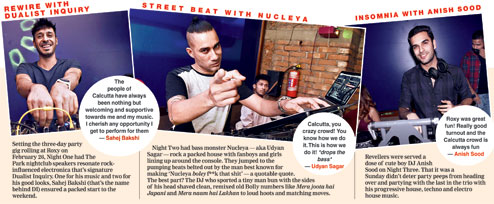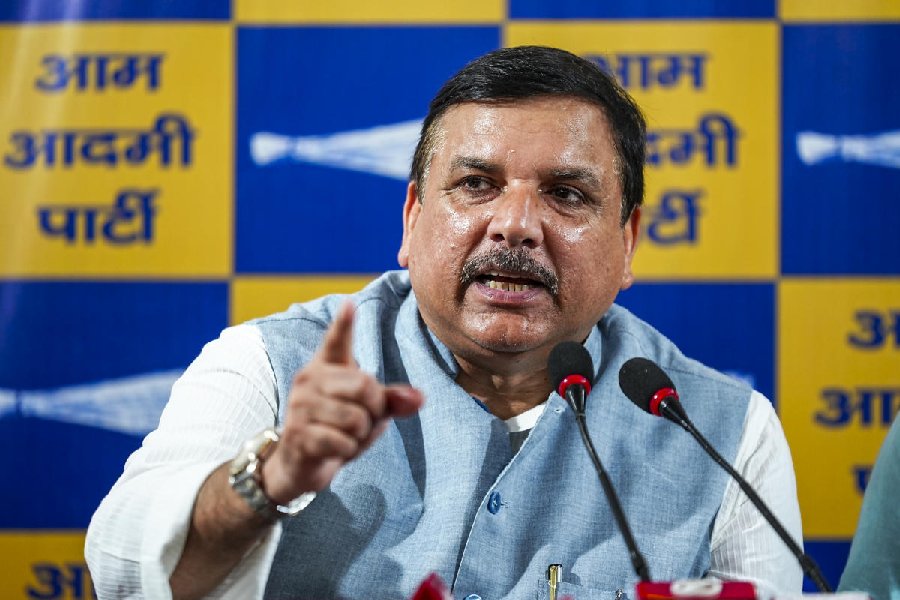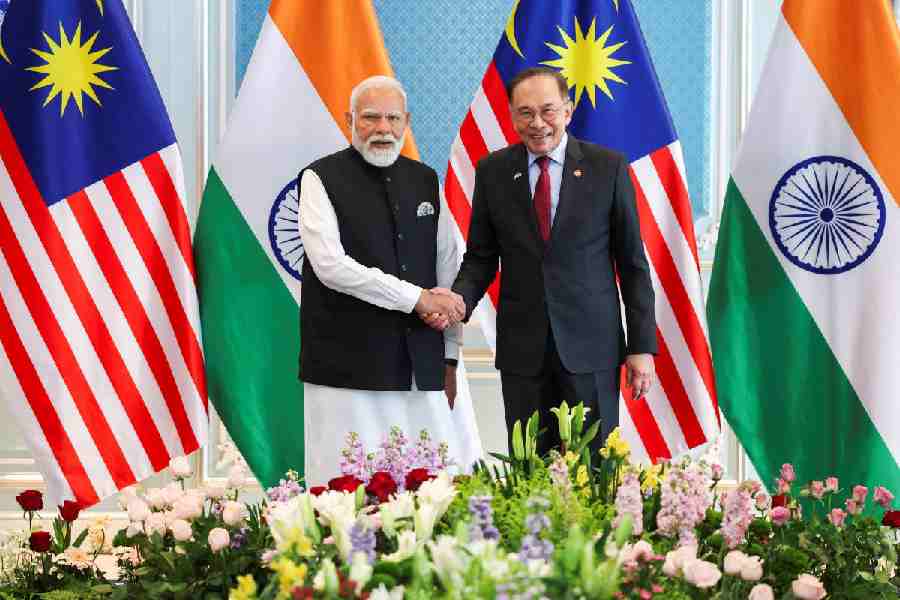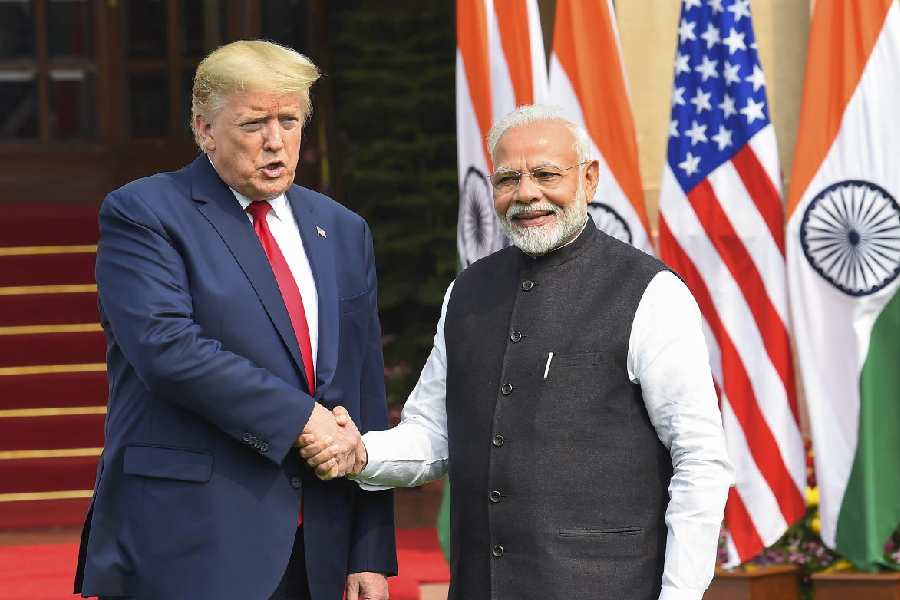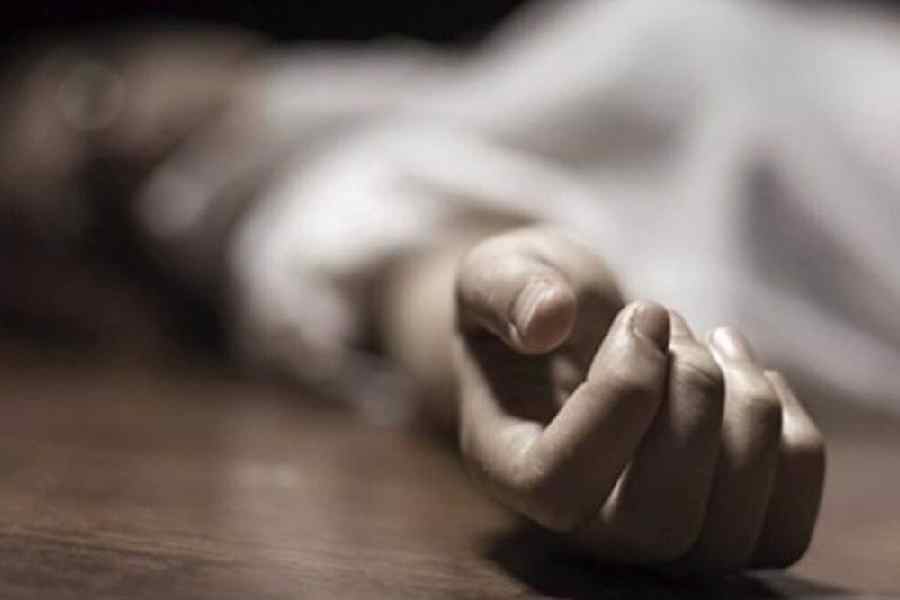This 20-year-old from Sandeshkhali, one of Bengal’s most trafficking-prone areas, was trafficked at 12. Anoyara Khatun, who is in the second year of college today, escaped from bondage a year later to return home where she now crusades against trafficking and child marriage. Loathe to talk about that horrifying chapter in her past, Anoyara believes in looking ahead to a world free of trafficking.

Child army vs trafficking
When I came back to Sandeshkhali from Delhi in 2007, I found these multi-activity centres where young people talked about a lot of different issues. The members asked me to join them. They told me that if we worked together we would be able to stop the trafficking of children like me, we may even be able to bring many of them back.
I slowly started to get involved in the centre run by DSWS (Dhagagia Social Welfare Society, a partner organisation of Save the Children), which was some distance away from my village. The centre also helped me get into a proper school and even there, the members of the group would come and talk to me to keep me motivated about the kind of work we needed to do to stop trafficking.
Every day after the centre closed, for half an hour the children’s group would survey the villages. If someone failed to come to the centre one day, the group made it their duty to find out why. The children’s groups are integral to our fight against trafficking. They keep an eye on the comings and goings in the villages and if they see anyone who seems suspicious they tail them. It is something that every child is told to do. If they find out that these people have any bad intentions then word is sent out to every member of the group and everyone meets to work out a strategy.
It is imperative to talk to the child first because we need to know whether he or she is at all willing to leave home for the lure of work. It is much easier for us when they are not willing. We have to talk to the child without being spotted by parents or brothers and sisters. Then we have to convince them that they are in danger. Only then do we talk to the parents. The children’s groups try to do all of this by themselves, but if needed they go to the child protection committee. Sometimes, we’ve had to take the help of the police.
Even back then, I wanted to spread our network wider, reach many more people, and lead an army of people against trafficking.
A lot of people ask me where I get the confidence to talk to so many people. I remember that in 2007, just after I had come back from Delhi, there was a get-together of all the children’s groups and we had to talk about issues like trafficking and child marriage. I spoke in my way about trafficking and I came first. That is what gave me the first boost of confidence and I thought that maybe I can really do something. And everyone at DSWS guided me.
When I had just come back I used to argue with Hridayda (Hriday Ghosh, founder of DSWS) all the time saying ‘you are saying so many things now, where were you when I was trafficked... why are you saying all this now?’ He always said that this girl will make a difference.

The first fight
I remember the first time we thwarted a trafficking attempt as clearly as if it was yesterday. That I think was the most important moment of my life. Around a month after I had become a regular with the children’s group, there was a trafficking attempt on a girl in my village by three people. Meena had been rescued once before and wasn’t willing to leave again. She somehow got word to us that she was in danger of being trafficked again.
The children’s group then got together. It was almost 7pm by then. At that time, the custom in our village was that after 6pm girls were not allowed to leave their homes. But everyone came. My mother and brothers told me ‘you do not need to go, let them deal with what is happening in their life’. I asked my mother if what is happening to Meena today, happened to me tomorrow, what would she do? My mother understood and let me go.
Meena’s parents refused to listen to us. So we went to the child protection committee. By then it was almost 8pm and the lights in almost all the houses had been switched off. One of the villagers took us to a panchayat member and convinced him to intervene. The panchayat member and a few others from the village then apprehended the three suspects and locked them up. When grilled, they admitted that they had come to take Meena to some dance bar. Meena was very pretty.
I remember how we had to run after these men at night when two of them escaped. Our area is all water (for pisciculture) with embankments and we were very young but we ran after them with whatever we could find in our hands as weapons, through water and mud. We finally caught them near the Sarberia bus stop. I will never forget that pursuit in the pitch darkness that night. We fell down, hurt ourselves but didn’t stop.
That incident gave me the confidence to save people from trafficking. It also made the villagers more cooperative.
Spreading the word
My children’s group chose me as the leader. Soon after that there was a state-level programme in Barasat where I had to speak about myself and the work we do. There were so many people there — the district magistrate, the additional district magistrate — I didn’t know those people at that time. When I went on stage and took the mic my hand was shaking. Hridayda wanted someone else to hold the mic for me but I didn’t want to let go. That was the only day that my hands shook. I conquered my fear after that.
We started exchanges between various children’s groups so that we could share our experiences with each other. I started going to the different groups and talking to them and slowly I became the group leader of three blocks in the area. Now I lead 80 children’s groups.
After I finished my Madhyamik in 2010, I was nominated for a state-level award that recognised five women for their work. Then in 2012, I was nominated for The International Children’s Peace Prize, the same prize that Malala Yousafzai won in 2013. I was really inspired by Malala Yousafzai, who won the Nobel Peace Prize in 2014, by how she risked her life to champion a cause she believed in.
I began speaking at all the state-level programmes and even a few national programmes. And then for the first time I went to Belgium for the Global Partnership in Education programme. I met Malala’s father there. I learnt so much about the problems and the work going on in different parts of the world. The fact that I could represent my country and hold up the issues we face here was a huge achievement for me.
In 2015, I went to the United Nations General Assembly. It was one of the best experiences of my life. The most fun part was... though we all spoke different languages, we still understood each other. I am going again this year and this time I want to focus on education.
For me, these are not just about winning an honour. For me, all of this has made me eager to take more steps forward in the work that I do. It has given me the impetus to dream bigger and to try and achieve more. I feel if I’ve been able to come this far, then I can go further with my work against trafficking, child labour and child marriage.
I was so happy to get The Telegraph She Award. I said after getting the award that it was for all my group members. An award especially for women will give more women the courage to work harder.
An ordinary day
I usually teach a few children in the morning, for free, because they are too poor to afford tuitions. I also study in the morning in between teaching them. The days I have college or tuition I leave home early. On my way back from college there are a lot of multi-activity centres and I sometimes drop into the centres to meet the children’s groups.
Our job is not without risk, especially against child marriage. We often have to appeal to the marriage registry officers or the maulanas and the purohits to not officiate a wedding that involves a minor. Sometimes we find out about the marriage just before it is happening, and stopping that takes a lot of fight. You know, there is a social stigma. A lot of them say that because the gaye holud ceremony has happened the marriage has to happen. Sometimes we’ve intervened even after the ceremony has begun. We have to face some violence because of that.
When I have free time I like writing poetry or songs and reading books. I like reading Saratchandra Chattopadhyay’s stories.
The road ahead
At the moment I want to finish my education and then I would like to keep doing my work. My aim is that there will not be a single dropout, or child domestic worker in the areas where there are multi-activity centres. Then we will move the centre to a place where it is more needed. We plan to move into the areas where there isn’t any awareness about these issues.
The best way to get across a message is when the person talking to you is your same age group. There are so many things they can’t share with their parents or sisters but they can with us. I think they understand better if we talk to them as friends.
Our children groups are very strong and I know that there will be more Anoyaras in the coming years — like Alamgir, Sujoy, Mubaina, Keya, Tanuja, from the groups that I lead. I want to give them the impetus to come forward and take up the cause.... Save the Children has now taken up the campaign to reach out to “every last child”, those who are the most backward in our society, and I want to help them do that.
The plea
It is not always easy to be courageous but I want to tell people like me out there that there may be things that happen to you but don’t be afraid. You might not be able to help directly but you can help. If you see a child involved in labour or someone being harassed you can always report it to someone who can intervene directly. You can help sitting right in your homes.
I want to request people in the cities to keep a watch for the children who are being trafficked from the villages. A lot of people who sit in their air-conditioned offices and give lectures are the same people who employ children as labour. They think about their own children’s futures but destroy that of someone else’s child. If those people read this and realise what they are doing is wrong, I will have achieved something.
If we see someone doing something wrong we should not look away, because we would be equally responsible. If we involve more people to protest then we can achieve a lot.
Anoyara is my shero because.... Tell t2@abp.in

